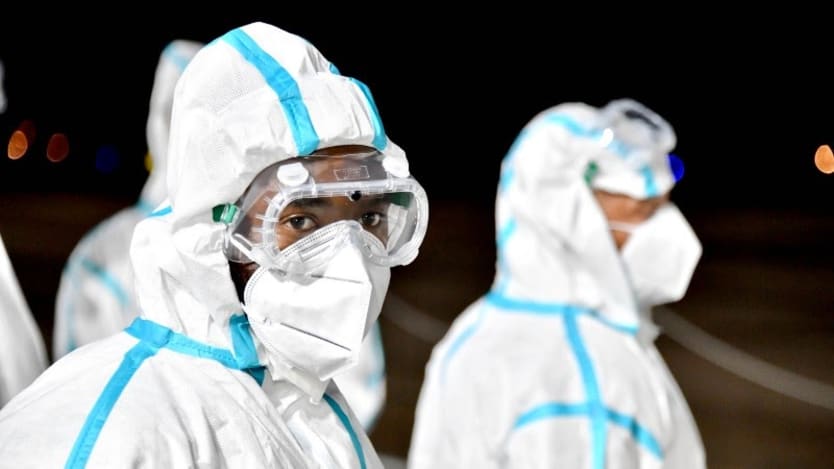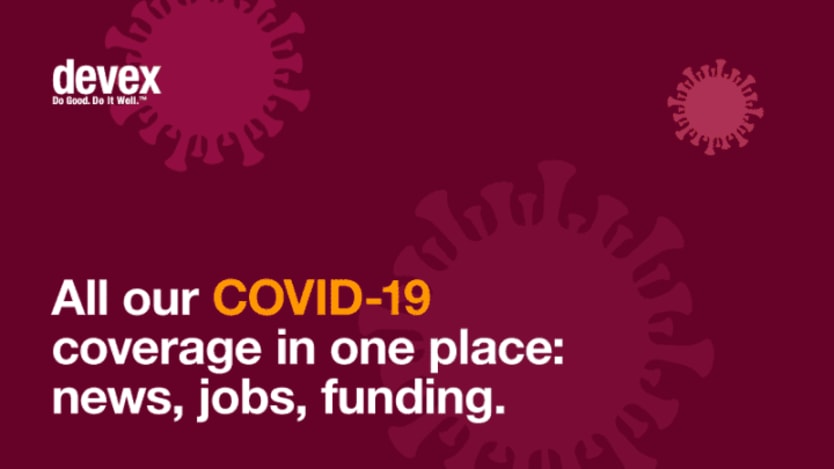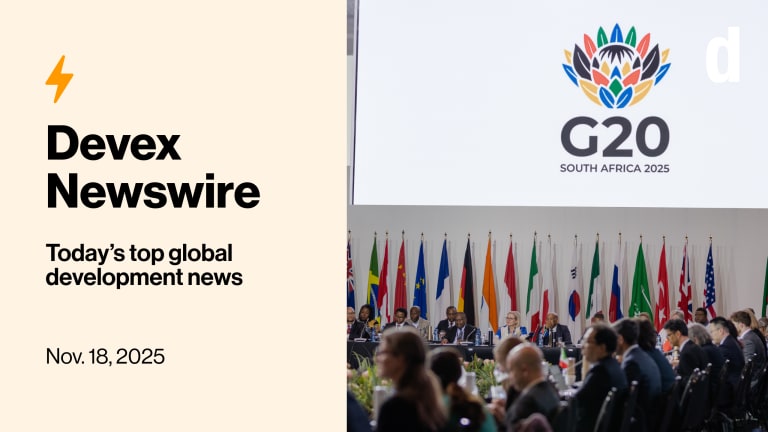
NAIROBI — At the end of July, South Africa hit a peak when it reported 13,944 new cases of COVID-19 in one day. Yesterday, it reported 2,420 new cases.
With this decrease in daily cases, responders to the pandemic are hopeful that the surge has quelled, but they also warn against complacency.
“I'd like to be optimistic, but I would like to have that optimism go along with us implementing intensive action,” said Dr. Owen Kaluwa, World Health Organization representative for South Africa.
With over 630,000 confirmed cases, the country is ranked seventh globally in the number of cases and it accounts for half of the total number of confirmed cases on the African continent. The country leads the continent as reporting the highest incidence of cases at 1,085 cases per 100,000 people, said John Nkengasong, head of the Africa Centres for Disease Control and Prevention, during a press briefing Thursday.
Responders aren’t completely sure what led to the spike in COVID-19 cases in South Africa, given that many see the government as having taken quick and decisive action.
“I think if the government hadn't responded in the way it did, the peak incidence prevalence would have been even higher,” said professor Ian Sanne, the chief executive officer at Right to Care.
Quick response
The pandemic response across the continent
► Politics gets in the way of Nigeria's COVID-19 response
► Muddled messaging around COVID-19 complicates response in Tanzania
► Stigma and weak systems hamper the Somali COVID-19 response
The country confirmed its first case of COVID-19 at the beginning of March. It was particularly vulnerable in those early days because of the international travel coming through South Africa, Kaluwa said. The O.R.Tambo International Airport in Johannesburg is the busiest on the continent.
“South Africa had a large number of imported cases over a short period of time, at the beginning. That laid the foundation for a potential explosive increase in the number of cases,” Kaluwa said.
It was in those early days that practices such as wearing masks and washing hands were not practiced widely, he added.
“At the beginning, people still had doubts whether COVID really exists,” said Pontsho Segwai, advocacy and child protection manager for World Vision in South Africa. “We had people in our programs going out and doing door-to-door campaigns.”
Cases also spread quickly in densely populated areas, such as townships, Sanne said.
The country shifted from imported cases to local transmission of the virus just over a week later. The government then declared a state of emergency and a strict lockdown followed.
The lockdown bought “critical time” to enforce measures including the use of masks, hand-washing, and social distancing, Kaluwa said. It also allowed the government to build up its surveillance systems and strengthen health facilities.
In early May, the country launched a $136 million emergency appeal for the response. In August, WHO sent a surge team to assist in the country’s response.
Over the past few months the government has used a “risk-adjusted approach” to slowly release some of the restrictions, said Dr. Zweli Mkhize, minister of health for South Africa during a meeting of African health ministers last week. Despite the large number of cases, the government never exceeded its bed or ventilator capacity while treating patients, he said.
The spike can also be attributed to a widespread testing campaign in South Africa, experts said. It has conducted 3.7 million tests, which is about 31% of the total number of tests conducted by African Union member states.
“Try to extinguish the small fires before they become raging infernos.”
— Dr. Owen Kaluwa, WHO representative in South AfricaOne of the challenges in the response was the ever-changing fluidity of it, Sanne said. As decisions were made, there were delays in making sure that new information was quickly disseminated from decision-makers down through the different levels of government, and then communicated effectively to the frontline health workers.
“It's been quite challenging in communication,” he said. “This has taken longer than I would have expected in an emergency response.”
There have also been difficulties for organizations in moving around because of the lockdown, particularly between provinces, said Mark Kelly, regional director for Southern Africa for World Vision. But NGOs could apply for essential service status, which allowed them to continue accessing communities at a more local level, he said.
NGOs also had to adapt their programming quickly. UNICEF, for example, now provides counseling services virtually for children and started working in water and sanitation, which it hadn’t had programming for in South Africa previously.
But there have also been widespread criticisms of the government’s response, including corruption allegations.
The African National Congress, the governing political party, has been accused of issuing tenders for personal protective equipment to individuals associated with the party’s leaders. The country’s auditor general said on Wednesday that part of the COVID-19 relief package may have been paid fraudulently to improper beneficiaries. Health workers have threatened to strike in response to these allegations.
Disparities amplified
While the strict lockdown helped slow the spread of the virus, it also exacerbated inequalities in the country, said Muriel Mafico, deputy head of UNICEF South Africa.
“The disparities that existed before were amplified by COVID. It exposed the fault lines,” she said.
Children were hit hard. Schools were closed, impacting 13 million learners in the country and of those, 9.6 million who depend on school nutrition programs, Mafico said.
Organizations have supported online learning, but in many low-resource homes, remote learning was not possible, organizations said.
“A lot of children that we personally work with were not able to continue with their education while the schools were closed. Helping them to catch up is also proven to be quite problematic,” World Vision’s Segwai said.
Schools reopened last week amidst teacher union concerns that the government hasn’t adequately addressed overcrowding and water shortages.
Childline South Africa, a nonprofit organization that works to protect violence against children through a hotline, had 21,827 calls during the end of March into April. That’s a 67% increase from the calls they received during the same period last year.
In recent months, there was also a surge in case of gender-based violence and femicide.
A second wave
The country is now under a less severe form of a lockdown, but still includes a ban on international flights.
As restrictions loosen, a key concern is that people might become complacent in practicing public health measures.
“I do think there will be a second wave, hopefully the second way won't be bigger than the first wave,” Sanne said.
Because of this, there is a need to focus on encouraging people to adhere to the recommended public health interventions, such as wearing masks, WHO’s Kaluwa said, through strengthening the country’s risk communication efforts and community engagement.
Surveillance efforts at the community level also need strengthening so that hotspots can be quickly identified and responded to, Kaluwa said.
“Try to extinguish the small fires before they become raging infernos,” he said.
The government also needs to strengthen infection prevention in health care facilities to make sure that other services continue, such as immunization, and caring for patients with tuberculosis, HIV, diabetes, and hypertension, Kaluwa said. Many patients have missed health visits for other issues during the past few months.
“I think that we are going to see a backlog of severe diseases,” Sanne said.
But despite the challenges facing the country moving forward, there is hope that it can be rebuilt in a stronger way.
“We have a tremendous opportunity to make sure that we build back better and that we build back a society that is more equal; that is more fair; that is more just; that is more inclusive. This is our chance,” UNICEF’s Mafico said.









